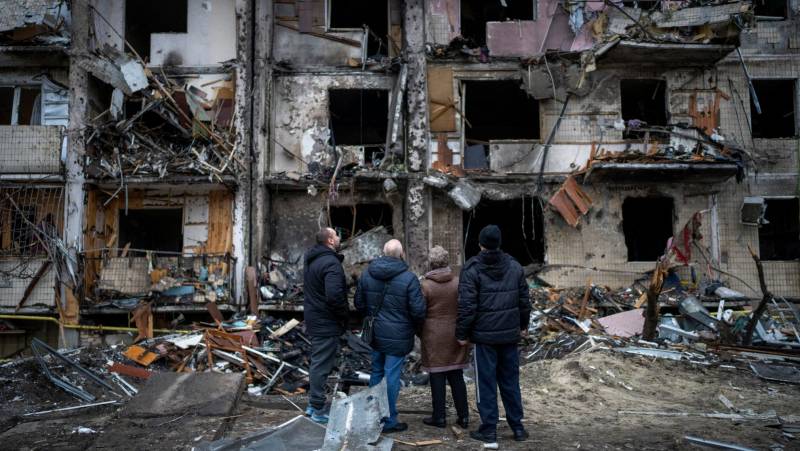Every gust of wind loosens another pane of glass, another lump of rubble, sending debris crashing into the streets of Chernihiv, scattering surviving civilians as they navigate their devastated city.
The industrial town of 300,000 sits across the path chosen by a Russian invading army for its advance on the Ukrainian capital Kyiv and it has paid a steep price for resisting the assault.
Dozens of civilians have been killed in shelling, missile attacks and air raids, and now those remaining live among ruins and craters many of them seeking to escape.
Sergei, a thickset man with a shaved bullet of a head and dark stubble, grips a sack of cat litter like a shield as he slaloms between the wreckage, his head bowed.
“There were corpses all over the ground,” he told AFP, as air raid sirens wailed once more. “They were queueing here for the pharmacy that’s just there, and they’re all dead.”
Chernihiv, controlling the northeast route towards Kyiv from the Belarus border, was always going to be a target of Russian President Vladimir Putin’s invasion of Ukraine.
But on the eighth day of the operation, encountering stiffer-than-expected resistance, Moscow decided it was no longer a question of taking the town, but of destroying it.
On Thursday, Russian jets roared over the city and unleashed a hail of what local witnesses described as cluster munitions, spiralling through the air with mini fixed rotors like sycamore seeds.
They hit a residential district of eight-storey blocks clustered around a clinic and a school building converted into a rear-base for resting Ukrainian soldiers.
According to the interior ministry, at least 47 civilians were killed in the first strike, and detonations could still be heard as shelling continued Friday.
“But what do these bastards want of us?” demanded 48-year-old survivor Serhiy Bludnyy as the dull throb of jets once more filled the air.
Many, perhaps most, of the population had decided not to wait to find out the answer to his question.
On Friday morning long convoys of civilians in a disciplined line snaked south towards Kyiv, with the warning sign “children” plastered in their windows.
But Petro Bahatyuk, 65, had not managed to gather together his family to make a move.
“My heart is in pieces. My children haven’t been able to leave, my grandchildren are still here, and I’ve come looking for them,” he said.
In a secret location, for fear of becoming Russia’s next target, local officials are trying to organise the survival of those cut off in the city.




